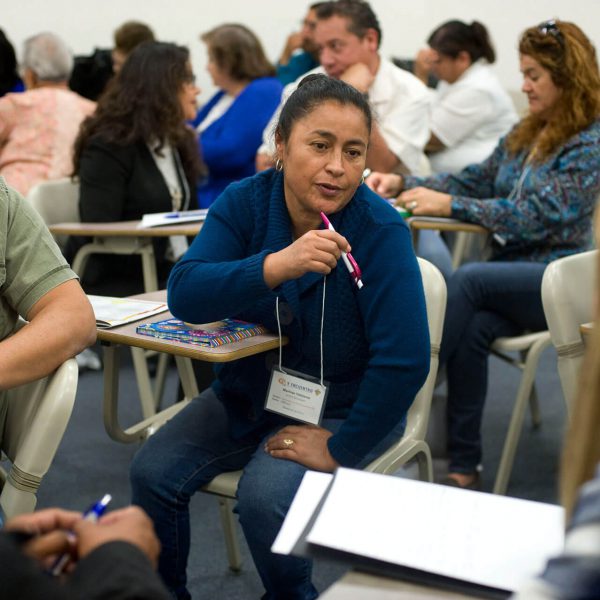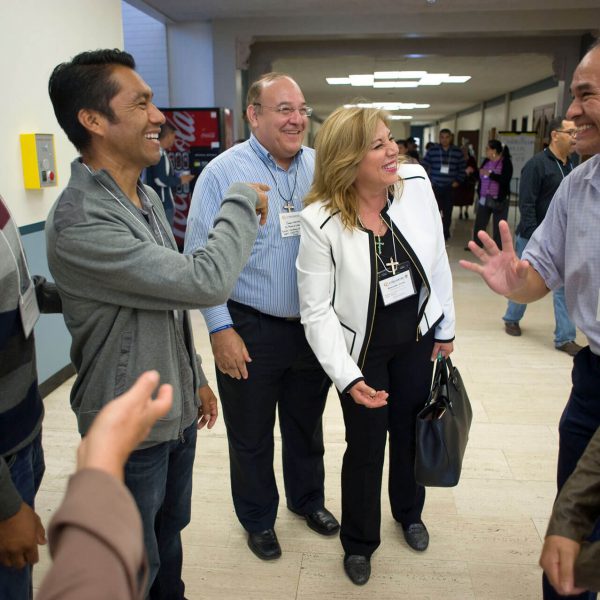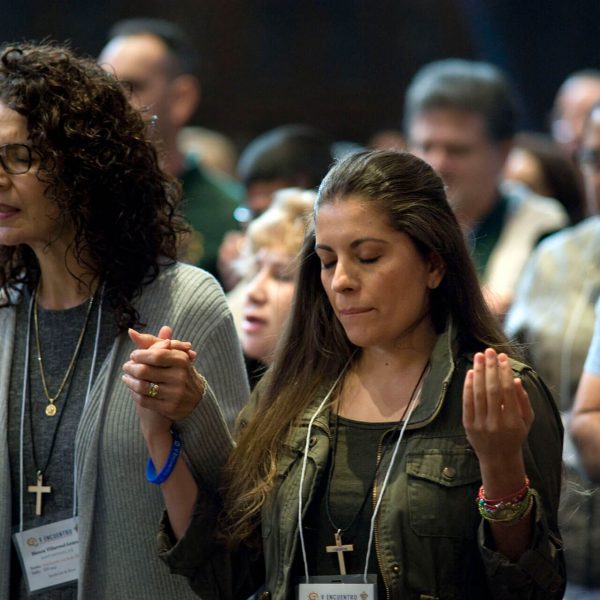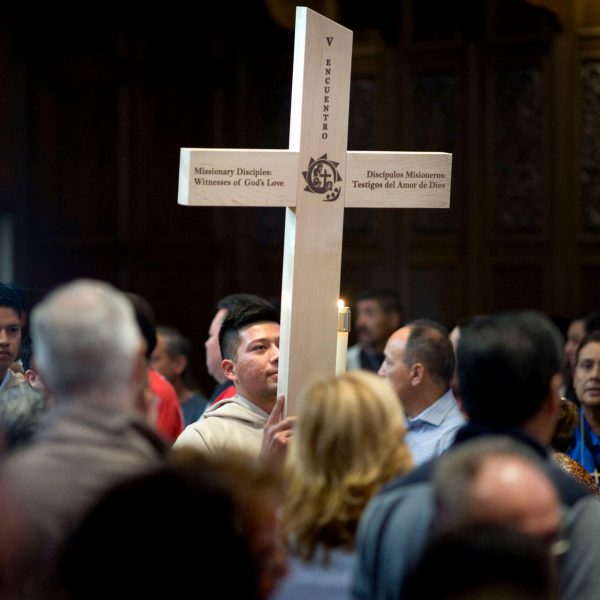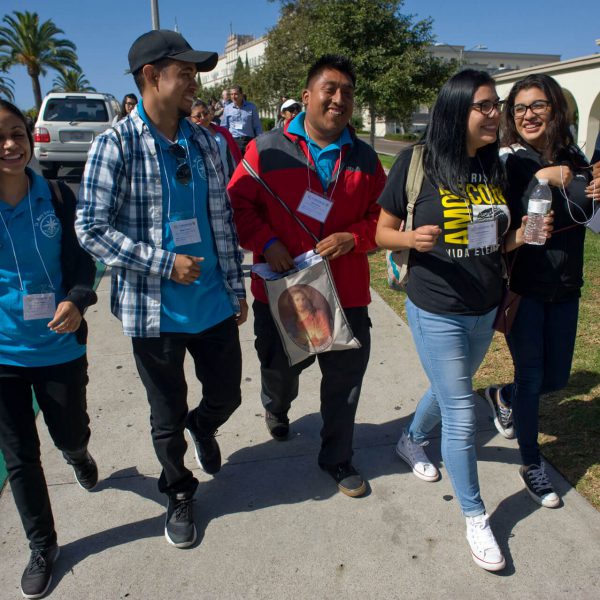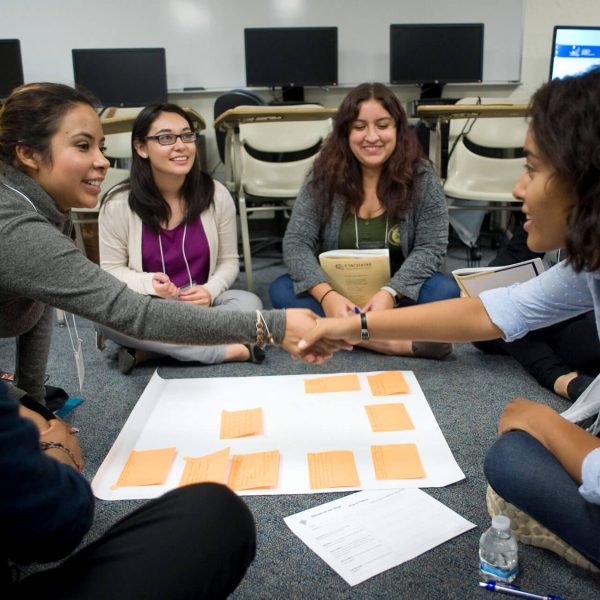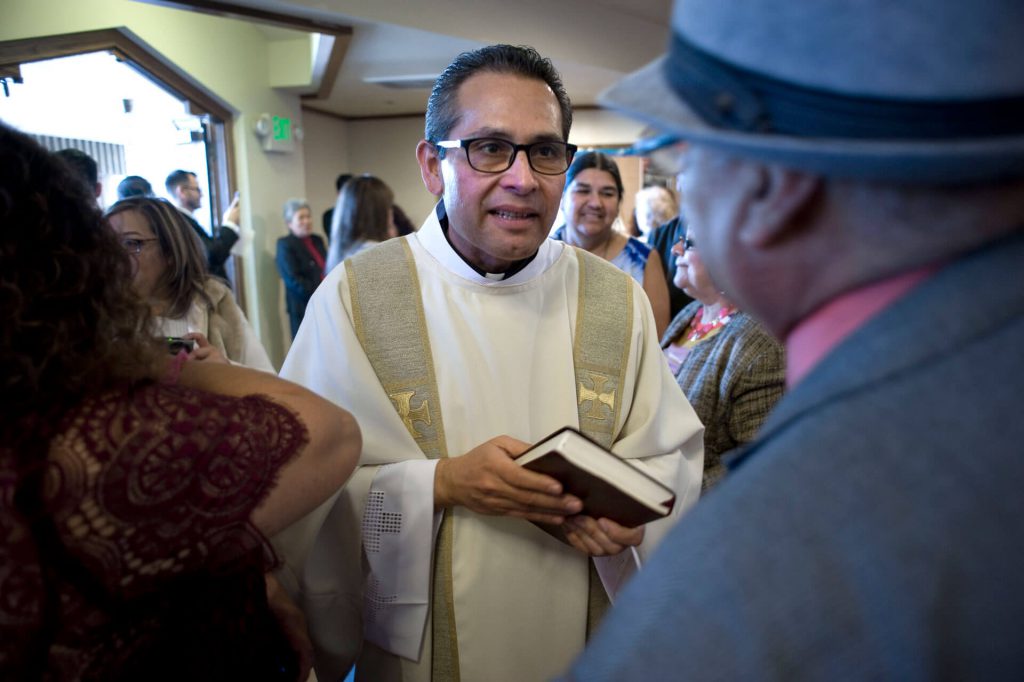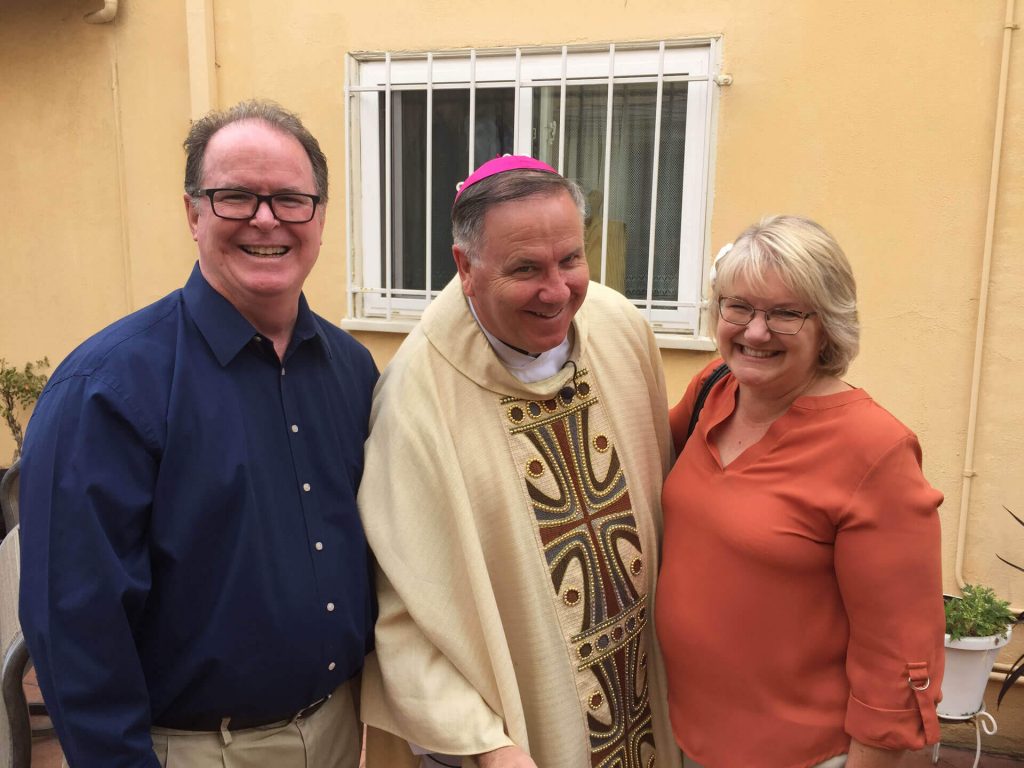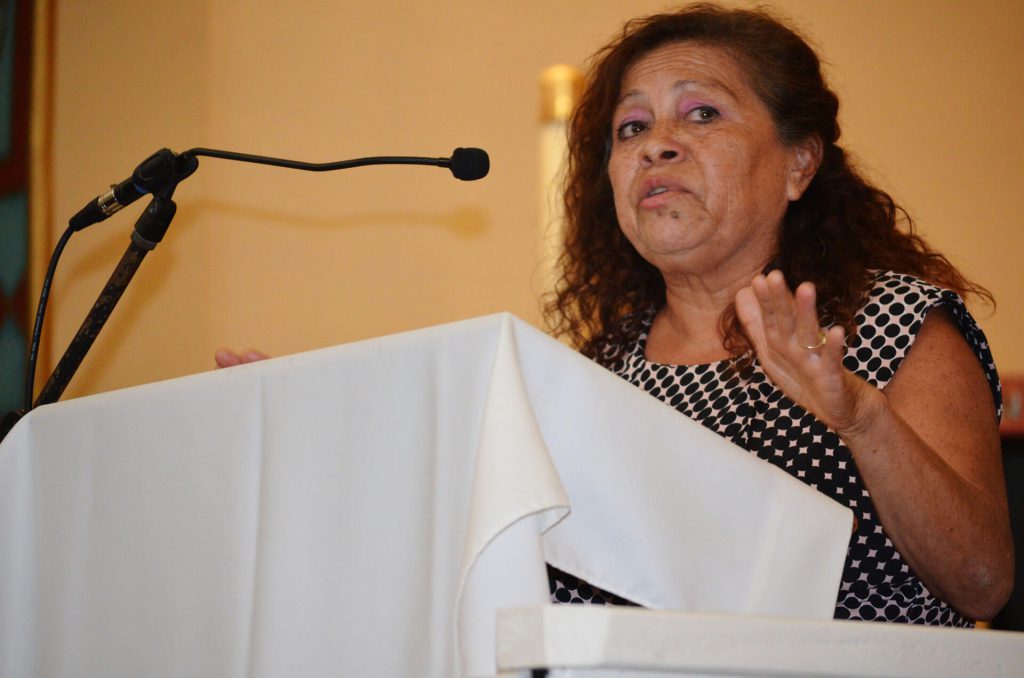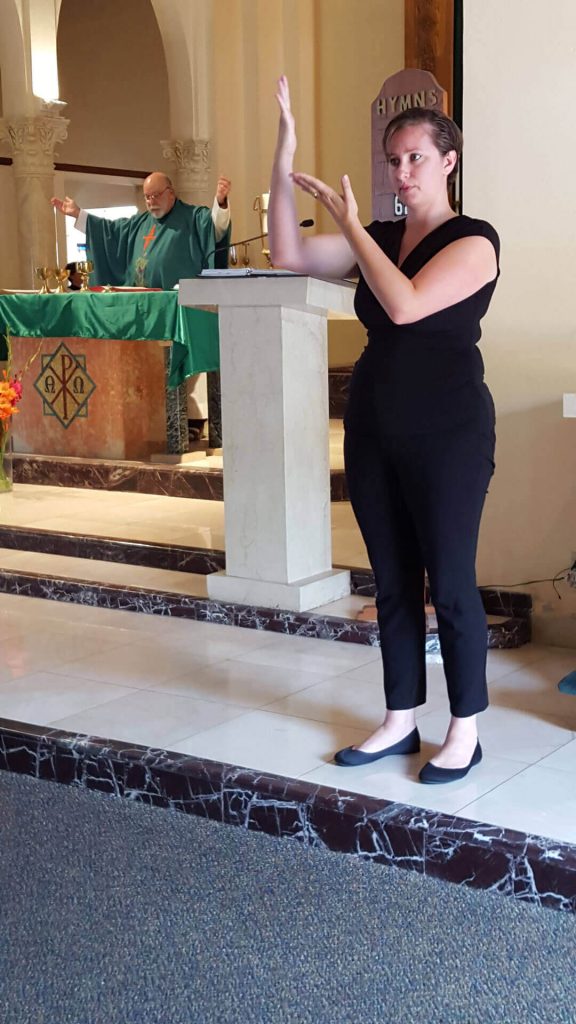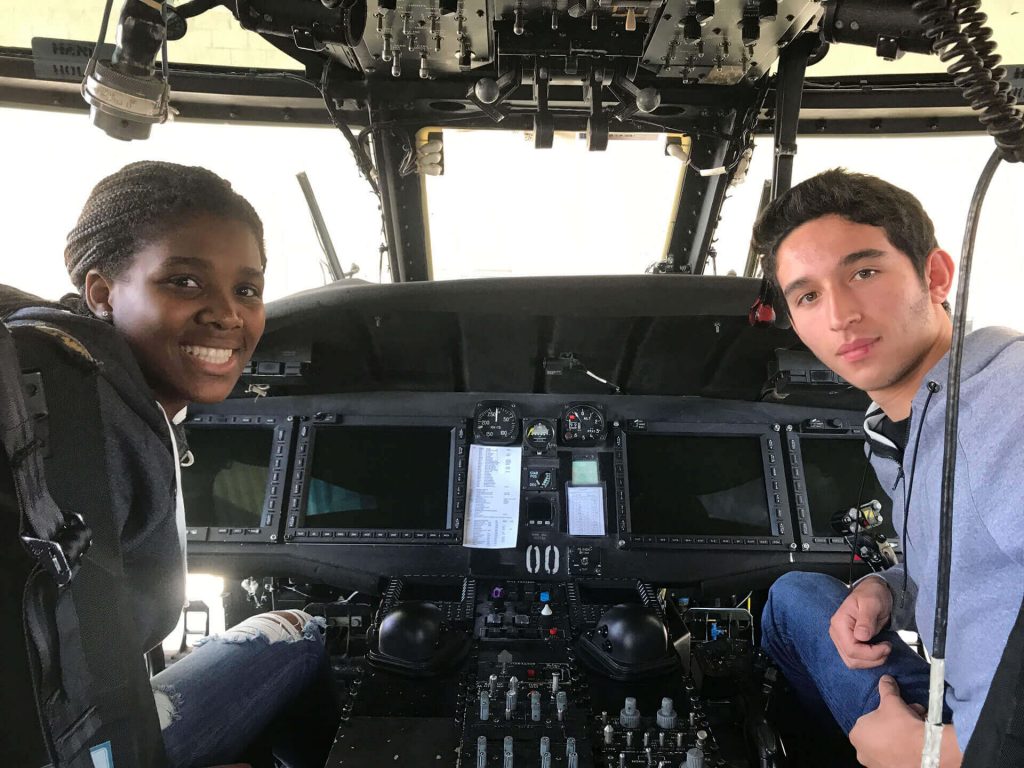SAN DIEGO — The diocese needs to find new ways to make young Latinos feel at home in the Church. Clergy should be more accessible to their Latino parishioners. All ministry leaders need recurring leadership training.
Those are the priorities that emerged at the San Diego Diocese’s Encuentro, held last month. Some 240 Latino Catholics — representing 43 parishes from Escondido to El Centro — developed 30 proposals in all to strengthen Latino Catholics at the diocese.
The proposals are important not only for the diocese, where about 63 percent of parishioners are Hispanic, but for the U.S. Catholic Church, where 38 percent are. What’s more, about 46 percent of all Catholic millennials nationwide are Latino, underscoring the critical need to bring young people into the Church.
“It’s important for us to chart a course for the future, particularly for the Hispanic community, which was the foundation of our Local Church and is the majority,” said Bishop Robert W. McElroy at the opening Mass of the diocesan Encuentro. “And it continues to be a source of inspiration and joy and participation, both in Imperial County and in San Diego County.”
The Encuentro was held on Oct. 21 at the University of San Diego. It was an important step in a four-year process called the Fifth National Encuentro of Hispanic/Latino Ministry, a priority project of the U.S. Catholic Church. The process continues next year with a regional Encuentro, April 27-29 in Visalia, California; and a national one, Sept. 21-23 in Grapevine, Texas.
The main goals are to discern the ways in which the Church in the United States can better respond to the presence of Latinos and to strengthen the ways in which Latinos themselves can lead not only their ministries or ecclesial movements, but their parishes, dioceses and the Church as a whole.
The bilingual process began at the grassroots level in January, when parishes held five sessions of reflections, discernment and actions; followed by a parish Encuentro. At each of those levels, participants developed proposals, which were submitted to the national Fifth Encuentro office to be analyzed by the U.S. Catholic Church.
“All of us are gathered here to ask how our Church must grow and change to accompany the enormous grace of this Hispanic moment in the Church of the U.S.,” Bishop McElroy told the Encuentro participants. “Let us walk together today, patiently and confidently, just like God accompanied His disciples on the road to Emmaus.”
Indeed, the evangelizing approach revealed in the biblical passage “The Encounter with the Disciple on the Road to Emmaus” provided the framework for the parish sessions and the diocesan Encuentro.
The delegates arrived from all corners of the diocese at USD, including a group that traveled from the Imperial Valley. They joyously gathered, hugging old friends and shaking the hands of new ones. Diocesan Chancellor Rodrigo Valdivia and the director of Evangelization and Catechetical Ministry, Marioly Galván, led the opening and closing sessions, alternating between Spanish and English.
In between, the delegates broke into small groups throughout the day, sharing their ideas and experiences. They listened to one another, thoughtfully deliberating how to frame their proposals.
In virtually all sessions, they expressed the concern that young people were not participating in the life of the Church. That fact was borne out at the event itself, which had relatively few participants under age 25.
One of them was Roni Lobato Ventura, 19, one of several members of the youth group at St. Francis of Assisi Parish. In one of the sessions, he stood in front of a classroom and spoke about how young people do not always feel welcomed at Church. He elaborated on that point in an interview later.
Some older individuals in charge of ministries don’t treat young people the way they should, acting on negative stereotypes, he said.
“They think that we, as young people, are lost. That we’re out there in the world doing things that we should not be,” said Lobato. “This attitude discourages young people and does not make them feel welcome. We don’t have the opportunity to express ourselves, to grow in our faith, and offer everything we have to give.”
Lobato, a sophomore at Cal State-San Marcos, said the youth groups at St. Francis work practically every day to encourage young people to become active in the parish. He welcomed the chance to participate in the diocesan Encuentro.
“It’s important for everyone to have a voice about what’s happening at their parish,” he said. “Maybe we can learn from each other.”
Enrique Méndez was a special guest at the Encuentro. He worked at the diocese for 34 years, serving Latino Catholics in various leadership capacities until his retirement in 2007. He directed the Centro Padre Hidalgo in National City that offered formation and leadership training to Latinos in Spanish until it closed in 2007 and its work moved to the Diocesan Institute.
Méndez, who helped coordinate the four previous Encuentros at the diocese, is not surprised that the need for leadership training continues. There are still not enough Spanish-speaking priests to serve all of the parishes with at least one Mass in Spanish, he said, though the situation has improved greatly. The number of ecclesial movements has grown too, he said, and they need trained leaders.
Added to that is the pope’s call for all Catholic leaders, including priests, “to get out of the office and encounter people in the streets.”

